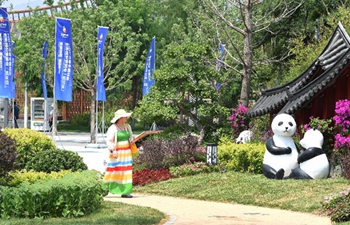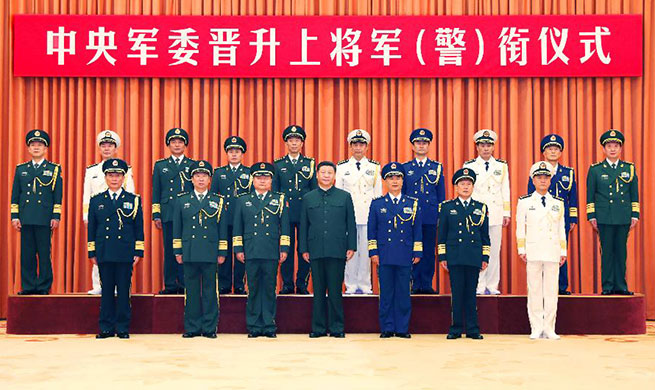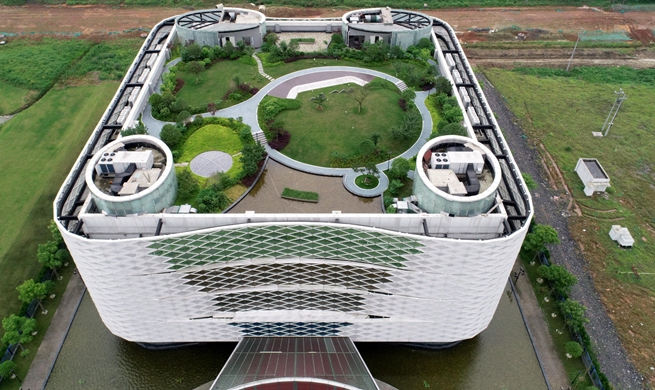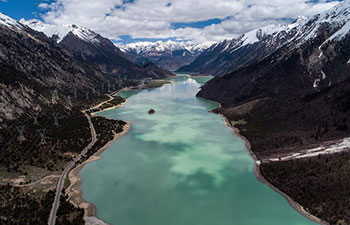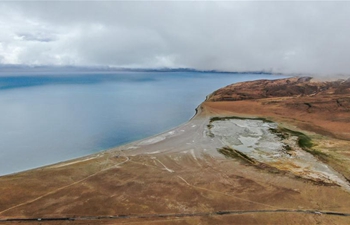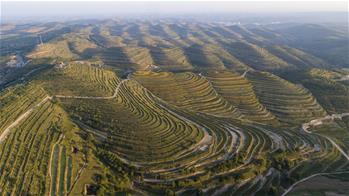WUHAN, Aug. 1 (Xinhua) -- Zhang Shengyuan, a former bird hunter and fisherman on Honghu Lake in central China's Hubei Province, has worked as a park ranger for 16 years at a local wetland natural reserve, rescuing sick aquatic birds and helping curb illegal bird hunting.
"I'm from a family of fishermen. As more and more people came to catch fish in the lake, the water became fetid and the fish population dwindled. I had been hunting birds here before I found my job at the wetland natural reserve," said the 61-year-old.
Zhang's experience is not unique. Out of concerns for the lake's environmental protection, 12,295 fishermen on Honghu Lake have given up fishing and started to seek careers onshore since 2016.
Honghu Lake, covering an area of 414 square km in the middle reaches of the Yangtze River, is the seventh-largest freshwater lake in China. Boasting rich natural resources, the lake is dubbed as the "gene bank for wetland species."
In the 1990s, fishermen crowded in the area to enclose Honghu Lake with fences and nets, separating it into numerous small fish ponds. At its peak, nearly 90 percent of the lake's natural wetland was encroached.
"When I rowed my boat on the lake at that time, I could hardly see the lakeshore, as my view was hindered by nets and fences from all directions," Zhang said.
Overfishing and overexploitation on the lake once degraded the waters to "inferior to Grade V," the worst in China's water quality grading system.
"The quantity of fish dwindled as the water quality worsened. Fishermen, therefore, poured more bait and fertilizer into the lake, which further damaged it," said Zhu Junhua, director of the Honghu Wetland Natural Reserve Administration Bureau. "A vicious circle formed. The more fertilizer they threw, the worse the water quality became, and the harder it became to make a living from fishing."
Facing such serious pollution, the local government took a series of measures to protect the environment of the lake and relocate the local fishermen. From November 2016 to January 2017, all fences and nets in Honghu Lake were removed, and 1,559 fishing boats were bought by the government.
The local government allocated around 270 million yuan (about 39 million U.S. dollars) to help fishermen settle down onshore.
Besides housing policies, the local government organized job fairs and career training courses to help fishermen find alternative employment. Those people aged above 60 can receive monthly subsidies.
Now, the water quality of Honghu Lake has been improved to "Grade III." About 6,666 hectares of lotus and water chestnut have flourished in the waters. The lake is also home to more than 100,000 migratory birds in winter, and over 30,000 in summer.
As the environment of Honghu Lake gets better, the fishermen here have also changed their minds. "At the very beginning, residents found it hard to leave the water they had lived on for generations. But they stopped complaining when they saw Honghu Lake turn beautiful again," said Zhang.
Honghu Lake will be open to tourists when the water quality stabilizes. By then, fishermen can also work in relevant industries and earn extra salaries. "I am confident about the future of fishermen in Honghu Lake," said Zhu.




